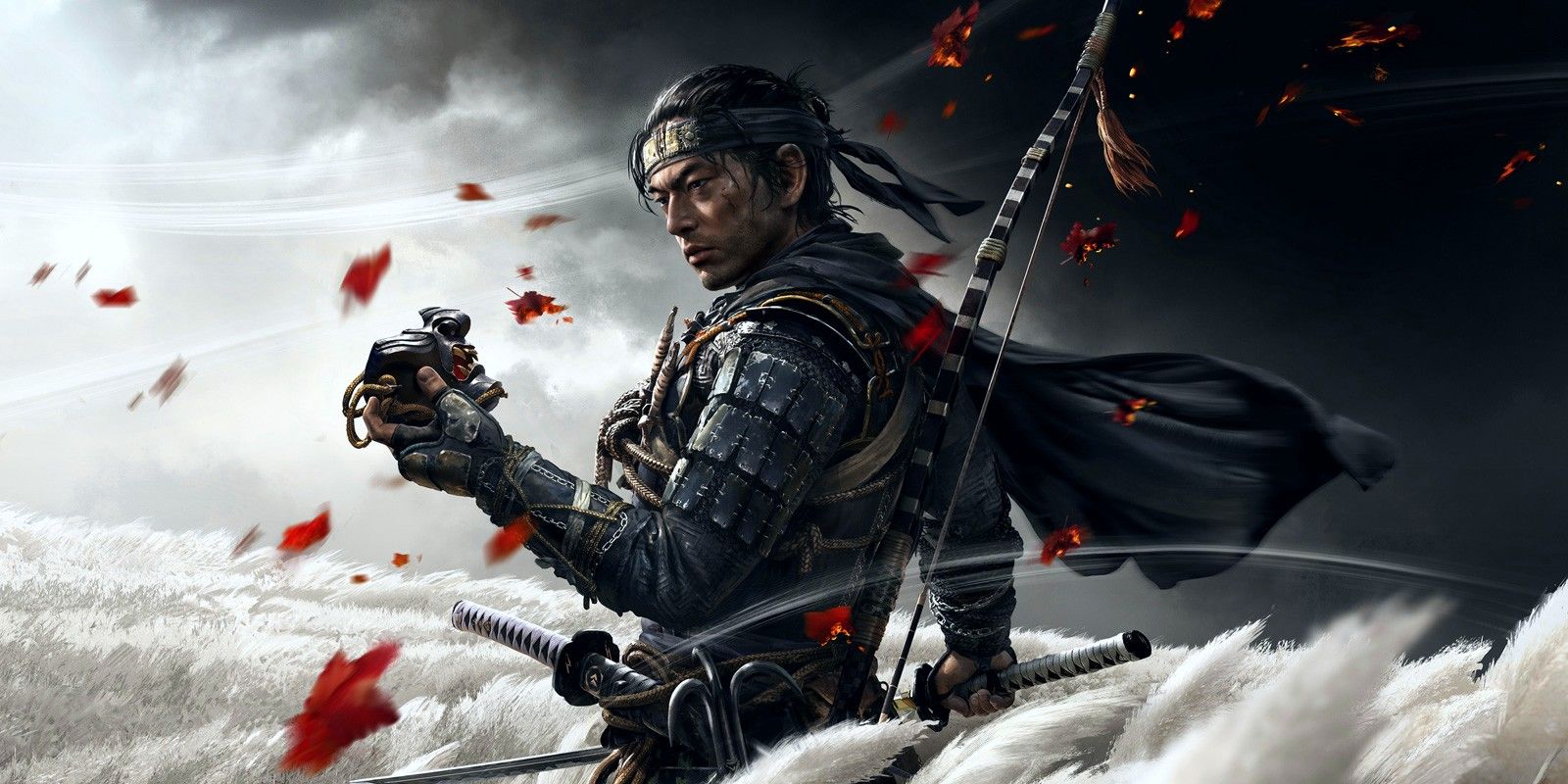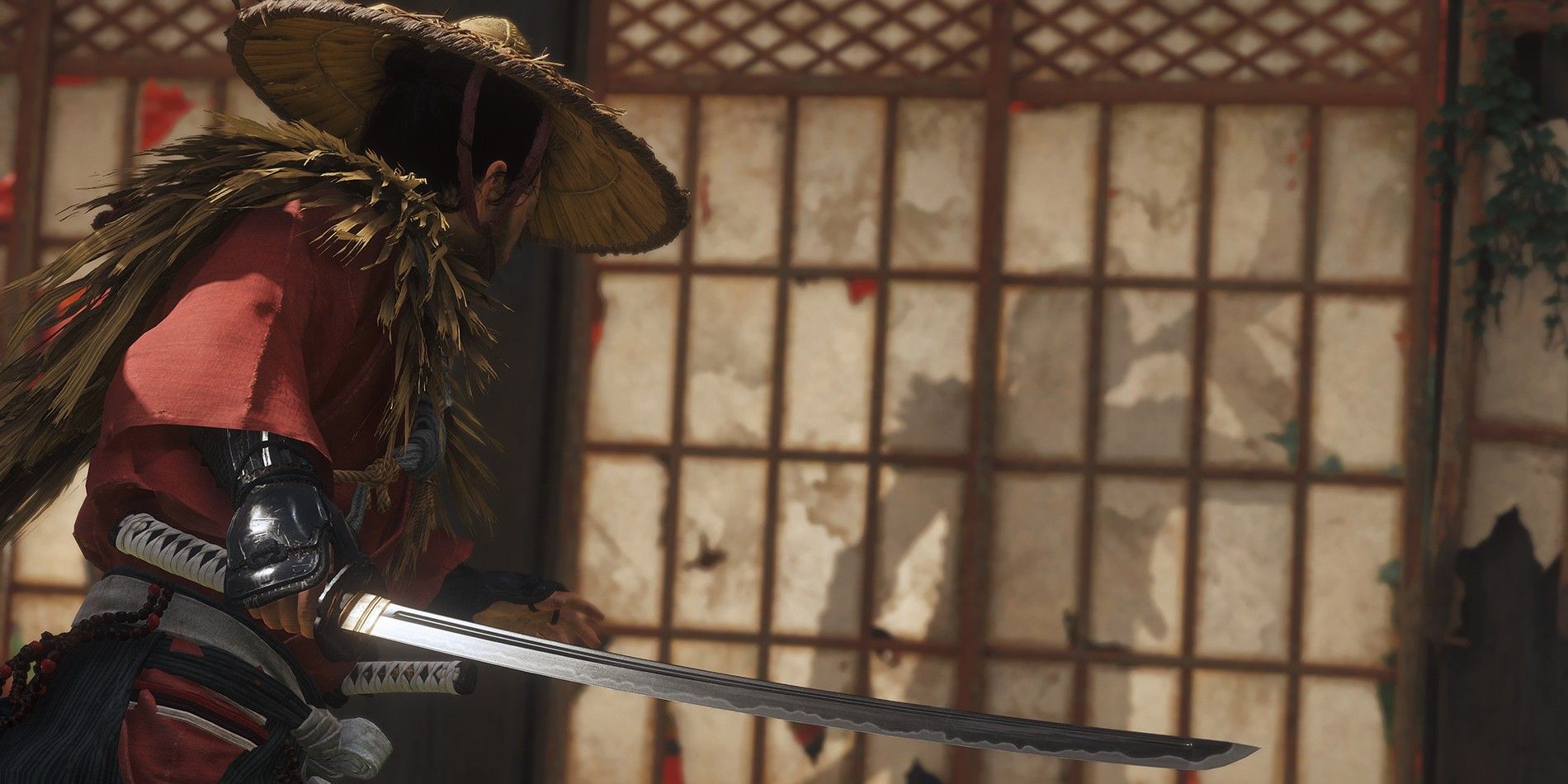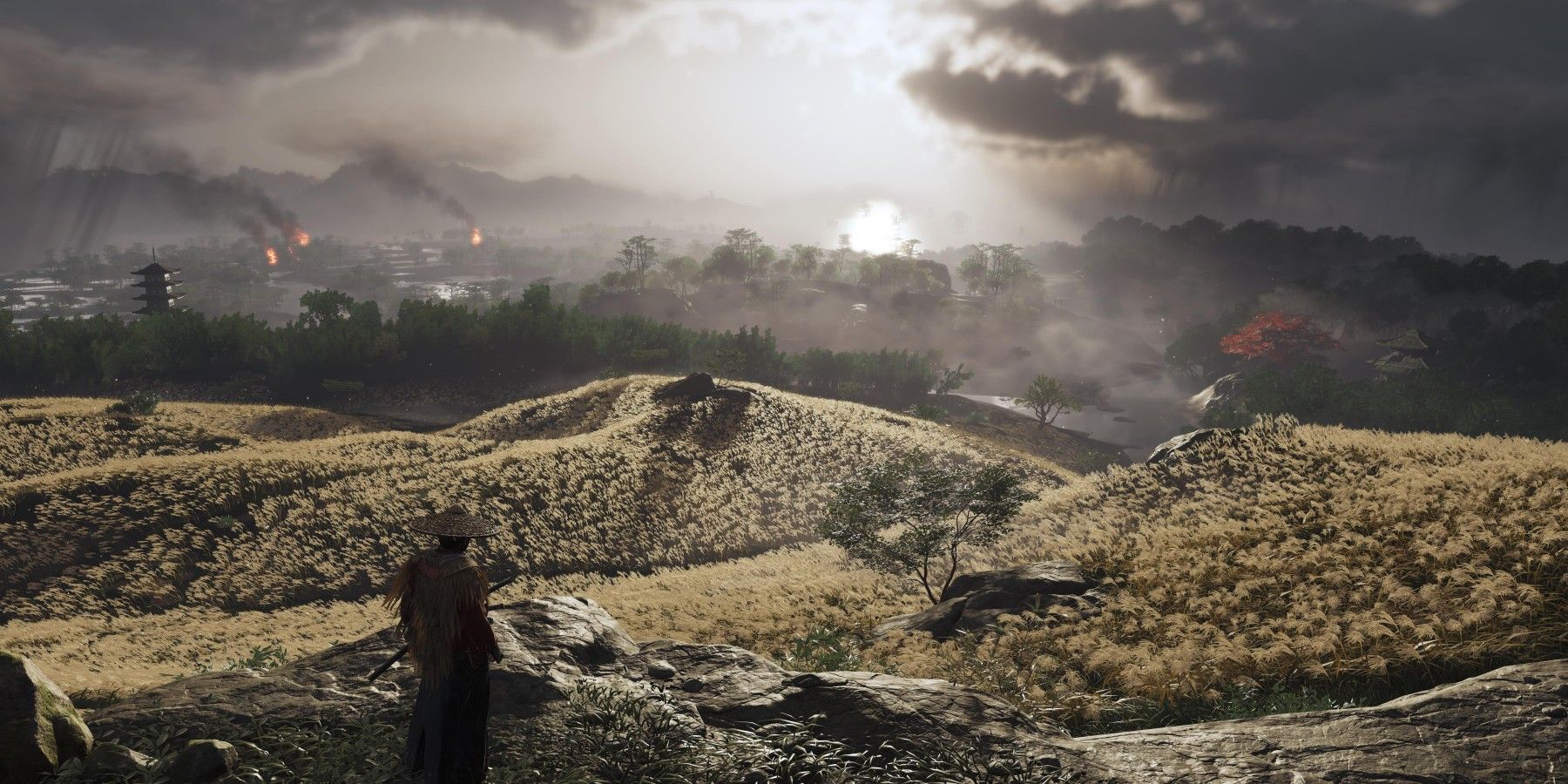Taking place on the titular Japanese island during the Mongol Invasion of Japan in 1274, Ghost of Tsushima follows a samurai named Jin Sakai, who is willing to sacrifice his warrior code to protect his home from the invading forces. Although not yet released, the action-adventure game has drawn many comparisons to the Assassin's Creed franchise, particularly the earlier installments, due to its stealth-based gameplay. In fact, Ghost of Tsushima might just be the Assassin's Creed game fans never got.
Ghost of Tsushima has the two main pillars of its gameplay emphasized in its skill tree system. There are two skill trees: one focused on skills related to samurai combat, and the other with abilities connected to being the titular "ghost." The ghost aspect of gameplay is where the comparisons to Assassin's Creed come in. While the samurai skills emphasize face-to-face sword combat, the ghost mechanic focuses on stealth and assassination. The game is designed to encourage players to switch between ghost and samurai depending on the mission specifics, as well as their preference for whichever form of combat.
Based on trailers, Ghost of Tsushima focuses on the story aspects -- inspired by Akira Kurosawa's samurai films -- of main and side quests. But the impact of the plot on the gameplay doesn't end there, as Ghost of Tsushima integrates the story into its mechanics. Ghost of Tsushima's integration of the skill tree into the story also parallels to how the first Assassin's Creed explained Altair's upgrades as him regaining his status as an assassin after being stripped of his status at the beginning of the game. In Ghost of Tsushima, Jin finds himself in a crossroad between being an honorable samurai and a vengeful ghost hellbent on taking down the invaders, even going as far to be as brutal as the Mongols themselves.
While the samurai skill tree is unlocked from the beginning, the ghost skill tree takes some time. This is consistent with the plot, as Jin has chosen to abandon the samurai's warrior code in favor of victory through any means necessary. Players can choose to act as an honorable samurai, or rely on sneaking and killing with the element of surprise, employing weapons and tools in the process. The game also throws incentives towards players to switch between styles, such as samurais being respected by NPCs during the day, unlike the ghost which may cause panic among the inhabitants of the villages, or the ghost being far more effective during night-time attacks as opposed to the more defensive samurai style.
Ghost of Tsushima doesn't seem content to just mimic Assassin's Creed, though, instead improving on some common elements. For example, the ghost skill tree also involves, along with agility and stealth, abilities to improve the character's alchemy, such as creating poison or smoke bombs, which is one way where Ghost of Tsushima has pushed the assassination stealth mechanics beyond the Ezio trilogy. The game also features interesting additions to the parkour mechanics, such as a grappling hook that allows Jin to climb up or leap across various structures faster.
In recent years, the Assassin's Creed games have moved away from their roots, introducing RPG elements at the expense of assassination stealth mechanics and that focus on the stories of main and side quests. There's nothing inherently wrong with those mechanics, but they do mark a departure from a key element of the franchise. In many ways, this positions Ghost of Tsushima as a spiritual successor to -- and natural evolution of -- the Ezio trilogy and the older Assassin's Creed games. Plus, for a long time, fans of the Assassin's Creed franchise have wanted a game set in feudal Japan. However, one has never come to fruition. This means, in many ways, Ghost of Tsushima might just finally give Assassin's Creed fans the game they should have gotten years ago.
Ghost of Tsushima is slated for release July 17 on PlayStation 4.



